T4K3.news
Palestine Action ban moves to new phase
Mass arrests test the legality and politics of the UK proscription as courts weigh future prosecutions.
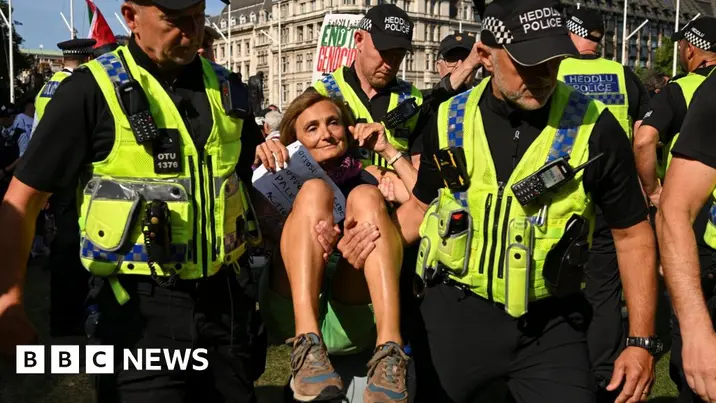
A legal and political clash unfolds as the UK weighs consequences of proscribing Palestine Action amid mass arrests.
Palestine Action ban enters a new phase after mass arrests
The Home Secretary last month proscribed Palestine Action as a terrorist organisation. At Parliament Square last week, police arrested about 522 people on suspicion of terrorism offences, more than double the 2024 total. The average age of those arrested was 54, with 112 aged over 70.
Three people have been charged with displaying support for Palestine Action during the July 5 protest and will appear in court next month. The director of public prosecutions, Stephen Parkinson, had to consult the Attorney General before moving ahead because some terrorism cases have extra safeguards. That means hundreds of the around 700 protesters may wait months to learn whether they face trial, possibly more than a year away. If charged, the maximum sentence in such cases is not guaranteed to be long, but the landscape is shifting with each filing.
The August 2024 incident at Elbit Systems UK in Bristol prompted a review of the ban. Eighteen people deny charges including criminal damage, assault and violent disorder. Officials have said the ban rests on serious criminal damage and violent acts, not a broad statement that the group is inherently violent. The government argues the action is necessary to prevent substantial harm, while critics warn it could chill dissent.
If the ban is overturned, hundreds of arrests could be dropped; if not, the long legal process will shape how the public sees both protest and state power.
Key Takeaways
"The system can't cope when thousands resist"
Huda Ammori on public reaction
"This is not a non violent organisation"
Home Secretary on proscription
"With an efficient sledgehammer in your hand you can cause quite a bit of damage"
alleged manual described in documents
"I've seen police look incredibly uncomfortable treating elderly protesters as criminals"
lawyer Katie McFadden describing arrests
The case tests how far a democracy will go to curb protest in the name of security. The involvement of the Attorney General signals a careful, legal approach that risks slowing justice but protects due process. The unusually old age of many protesters underscores civil liberties concerns and the risk of a chilling effect on peaceful dissent.
The political costs are rising as the public watches how charges are applied and how quickly court decisions come. The Home Secretary must balance public safety with the optics of a hard line against protest, a balance that could determine future limits on speech and assembly.
Highlights
- The system can't cope when thousands resist
- This is not a non violent organisation
- With an efficient sledgehammer in your hand you can cause quite a bit of damage
- I've seen police look incredibly uncomfortable treating elderly protesters as criminals
Legal and political risk around proscription
The ban raises civil liberties concerns as hundreds of elderly protesters could face criminal charges for nonviolent acts. Prosecution delays and high number of arrests risk public backlash and political tension that could influence future protest rights.
The coming hearings will test how far protest rights can bend in a fragile balance.
Enjoyed this? Let your friends know!
Related News

EU diplomats push for Gaza action
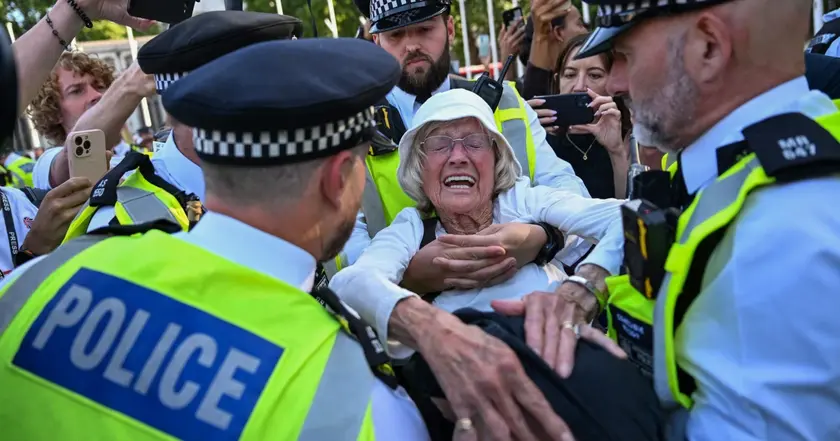
London arrests 474 protesters over new Palestine Action ban
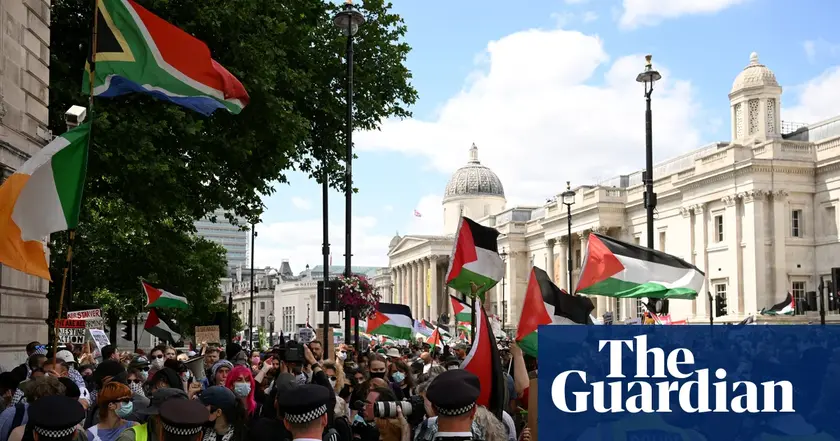
Protest rights under new UK terrorism designation
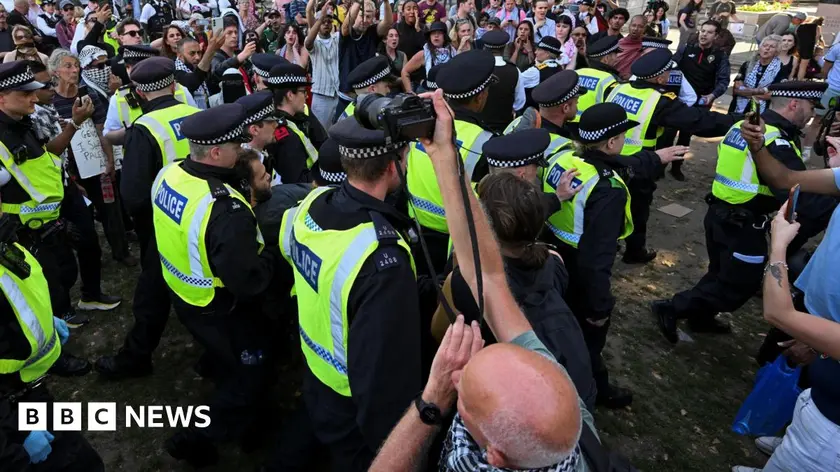
Palestine Action Ban Spurs UK Debate

Israel questions Western recognitions of Palestinian state
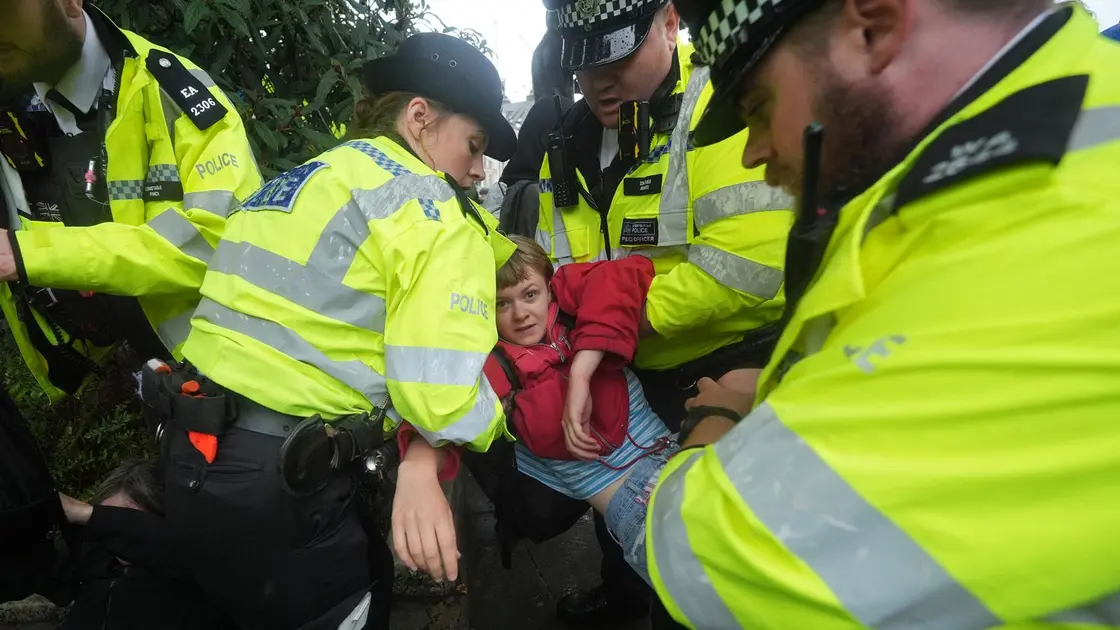
Protests against Palestine Action ban lead to multiple arrests
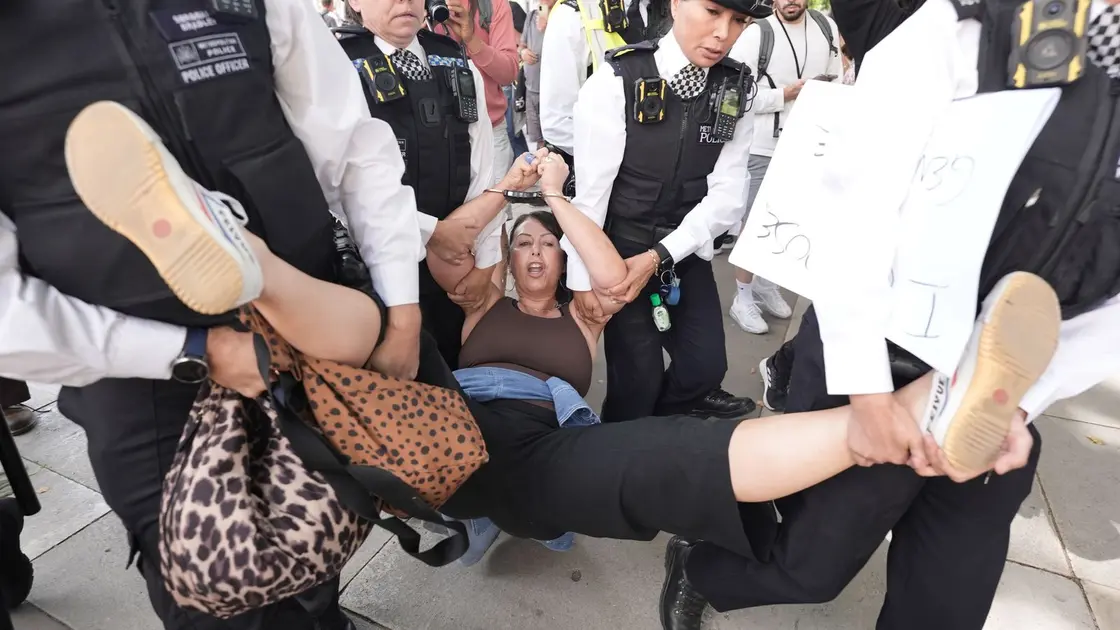
Arrests at London Palestine Action Protest After Proscription

Turkey closes airspace to Israeli official and military aircraft
